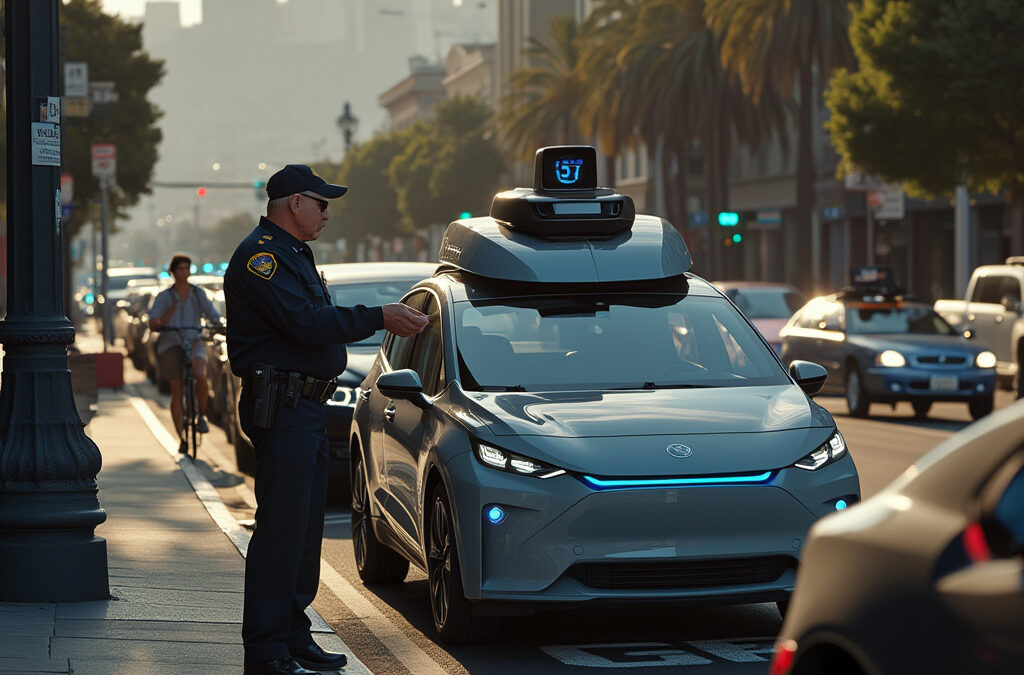“`html
Tesla Hits a Wall and Waymo Racks Up 600 Parking Tickets
In a year marked by both innovation and setbacks for the automotive industry, two major players—Tesla and Waymo—have made headlines for very different reasons. While Tesla faces challenges in its electric vehicle production and market dominance, Waymo, Alphabet’s autonomous vehicle subsidiary, has found itself in an unexpected predicament: accumulating nearly 600 parking tickets in San Francisco.
In 2024, Waymo’s fleet of approximately 300 self-driving cars operating in San Francisco received 589 parking citations, resulting in a total of $65,065 in fines. The violations ranged from obstructing traffic and violating street-cleaning schedules to parking in restricted zones. These infractions, while common in a city like San Francisco, highlight the ongoing struggles of autonomous vehicles to navigate the complexities of urban driving.
San Francisco, known for its dense streets and stringent parking regulations, issued around 1.2 million parking tickets in the same year. While this puts Waymo’s 589 citations into perspective, it also raises questions about the ability of self-driving cars to fully comply with parking laws and adapt to the nuances of city driving.
Waymo has acknowledged the issue and is actively working to address these parking challenges. The company explained that its vehicles sometimes stop in commercial loading areas to drop off passengers when alternative locations, such as busy main roads or distant spots, are less suitable. Additionally, the cars may briefly pause between rides if they find themselves far from a Waymo hub.
These parking difficulties underscore the broader challenges faced by autonomous vehicle technology in urban environments. As long as human intervention remains necessary, Waymo’s cars—and other self-driving vehicles—are likely to continue encountering similar situations and receiving tickets.
The incident also sparks a larger conversation about the future of autonomous driving. Can self-driving cars ever fully comply with parking regulations? How will they adapt to the unpredictable nature of city streets? The answers to these questions will be crucial as companies like Waymo continue to refine their technology and push for widespread adoption.
For now, the 600 parking tickets serve as a reminder that even the most advanced autonomous vehicles are not yet perfect. As the industry evolves, the ability of self-driving cars to handle everyday challenges like parking will be a key indicator of their readiness for the real world.
“`
Understanding the Technical and Regulatory Challenges
Delving deeper into the issue, the challenge for Waymo lies not just in avoiding parking violations but in mastering the intricate dance of urban mobility. The company is enhancing its mapping systems to better recognize temporary loading zones and time-restricted parking areas, which can change based on city activities or events.
Waymo is also exploring collaborations with San Francisco’s transportation authorities to gain real-time data on parking restrictions. This partnership aims to create a more dynamic system where autonomous vehicles can adjust their routes and stopping points based on up-to-the-minute city planning data.
From a technical standpoint, Waymo is refining its decision-making algorithms to prioritize legal and safe stopping areas. The company is implementing machine learning models that analyze historical parking patterns and city schedules to predict and avoid potential violations.
This incident has sparked a broader conversation within the autonomous vehicle community about standardizing parking regulations and improving communication between cities and AV operators. Regulatory bodies are now considering how to create clearer guidelines that accommodate the unique needs of self-driving cars.
As Waymo continues to address these challenges, the company is also engaging with public stakeholders to gather feedback on how autonomous vehicles can better integrate into urban environments. This collaborative approach is seen as crucial for building public trust and ensuring that AV technology meets real-world needs effectively.
Conclusion
The parking ticket incident involving Waymo’s self-driving cars in San Francisco highlights both the advancements and challenges in autonomous vehicle technology. While Waymo has made significant strides in developing its fleet, the accumulation of nearly 600 parking citations underscores the complexities of navigating urban environments. The company’s efforts to enhance its mapping systems, decision-making algorithms, and collaboration with city authorities demonstrate a proactive approach to addressing these issues.
As the automotive industry continues to evolve, incidents like these serve as valuable learning opportunities. They emphasize the importance of refining technology to better adapt to real-world scenarios and the need for ongoing collaboration between tech companies and regulatory bodies. While autonomous vehicles show immense promise, the journey toward perfecting their operation in dynamic urban settings is still underway.
For now, Waymo’s experience in San Francisco remains a key case study in the broader discussion about the future of autonomous driving. It reminds us that even the most advanced technologies require continuous improvement to meet the unpredictable challenges of the real world.

